Zeinabou Mint Abdel Jelil, Chairwoman of the National Youth Council of Mauritania
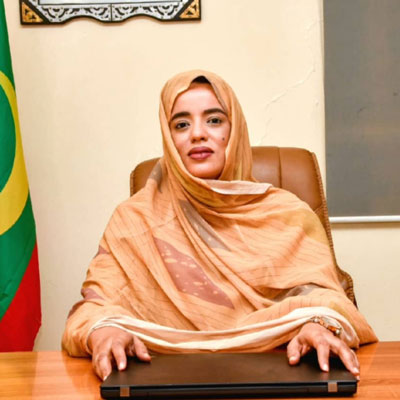
Zeinabou Mint Abdel Jelil is the Chair of the National Youth Council, whose role is to ensure that young people’s voices are heard by the highest authorities and to participate in the design and implementation of youth strategies and programmes.
She has a rich professional background: she has been, among other things, a key player in Mauritania’s entrepreneurial ecosystem. In 2014, together with a group of young people, she founded an incubator focusing on new technologies, with the aim of bringing other African digital experiences to young Mauritanians. She agreed to an interview to share the potential and aspirations of Mauritanian youth with the readers of the Alliance Sahel newsletter.
What is the status of young people in Mauritania today?
Young people of all ages account for the majority of the population of Mauritania. These young people are dynamic, ambitious and persevering, and are open to the world thanks to their extensive use of social networks new technologies. Young Mauritanians have many aspirations for a better education, and for greater access to employment opportunities, entertainment and leisure.
Major efforts were deployed in recent years to ensure a better future for young people.
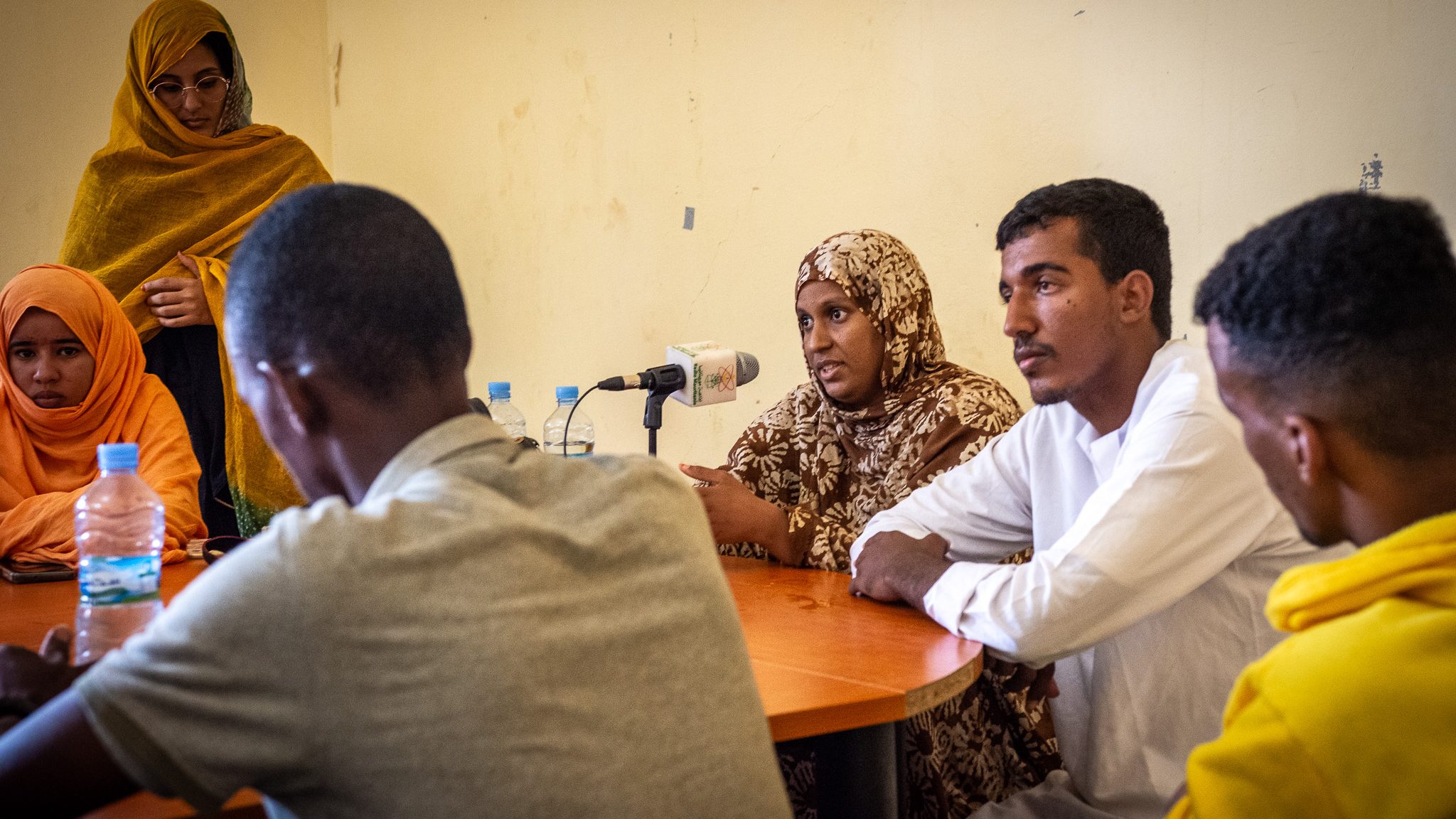
At a political level, there is a real desire to involve them in the country’s development: for example, a new list was created for young people aged between 18 and 35 for the legislative elections last year, giving them direct access to parliament. This means they have a greater influence in the decision-making process, and we hope that this experience will motivate other young people to get more involved in politics et to become real agents of change in the society. We also saw young people’s involvement in public administration encouraged by the appointment of young people to key positions.
At the economic level, special funds have been created to finance economic empowerment programmes for young people, such as the 20 billion ouguiyas employment fund. Several innovative programmes to improve the employability of young people and their involvement in society were launched: PAREJ (employability), Mechroui Moustakbeli (entrepreneurship), Mehneti (vocational training), Samah (financing civil society), Watanouna (voluntary work), etc.
Young people are also heavily involved in civil society structures. But they also need capacity-building support, because the challenges they face are many.
The Mauritania Startup Act was adopted to further support the development of the digital entrepreneurship ecosystem. It focuses on creativity, innovation, the use of new technologies, the creation of added value and competitiveness at national and international level. This Act also provides for the introduction of a label of merit and advantages for actors in the digital entrepreneurship and innovation ecosystem, including entrepreneurs, startups, support structures and investors.
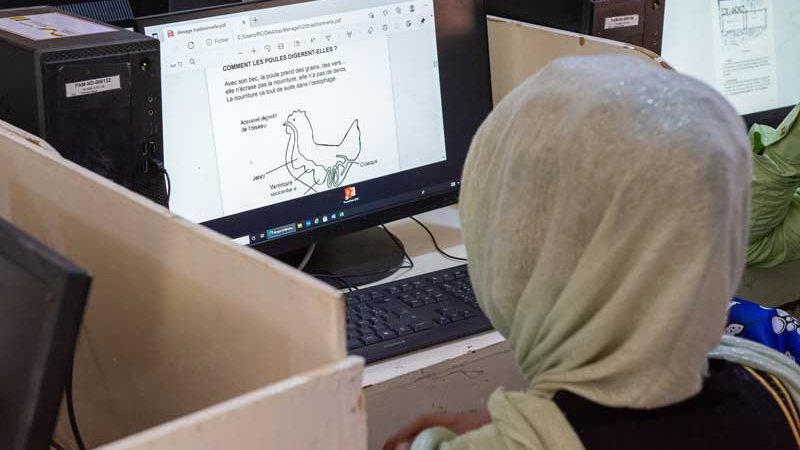
What more can be done to support young people?
Despite the efforts deployed and the resources allocated to empower young people, they still face major structural and economic challenges. Their aspirations are constantly evolving. Thus, much remains to be done to meet these challenges and accelerate progress in terms of human capital, making young people a real lever for growth and progress for the country.
This requires a holistic approach to youth empowerment, combined with close collaboration with development partners, leveraging the potential of the local and international private sector, and the commitment of the diaspora. The creation of an effective coordination mechanism is essential, and the new national youth strategy 2024-2030 could provide a good basis for the operationalisation of this mechanism.
In addition, the university educational system needs upgrading to reduce the imbalance between skills and labour market demand.
Supporting the training of young people in the professions of the future, such as advanced digital technologies and the green economy (hydrogen, etc.) is vital. For example, the creation of a coding centre of excellence to train our young people in advanced coding should be considered. Particular attention should be paid to an emerging sector in the region, the creative industries (music, art, fashion and design, cinema), which has a great potential for integrating young people, especially from disadvantaged backgrounds.
Multiplying programmes to promote entrepreneurship and diversifying our financing mechanisms are also necessary to develop our ecosystem and create more job opportunities for our young people. One of the solutions being considered is to combine this with the creation of a special guarantee fund for financing young people. It is also important to encourage agricultural entrepreneurship and to work on the entire agricultural value chain (production, processing and marketing), as well as on related activities, such as the services sector (transport, trade, etc.). This should be supported by a specific strategy to promote access to land for young people.
In rural areas, young people should be supported by specialised support structures to help them seize the economic opportunities specific to each region. For example, in the valley, the focus could be on agriculture, in the northern regions on mining activities, etc. Young people can be supported through pilot schemes which can be then extended with specific support. Given the situation in the region and the economic, security and cultural context, it is important to raise awareness on social cohesion and openness to others, particularly with regard to welcoming refugees.
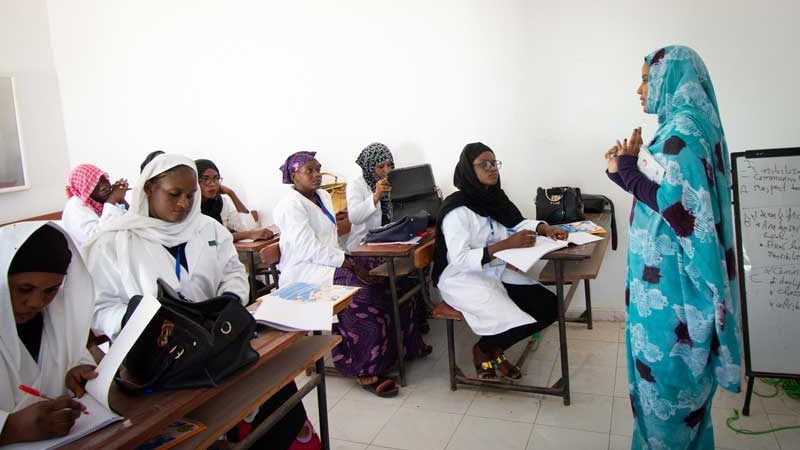
What role can women and girls play in the entrepreneurial sector?
In Mauritania, unfortunately, women’s role in formal entrepreneurship is limited by a number of constraints, in particular structural ones. In the informal sector, women’s work is extraordinary, often engaging in what is called “necessity entrepreneurship”. They need to be helped to formalise their initiative and to move from a necessity-based activity to a genuine activity of production and value creation. With targeted investments, the number of women running small formal businesses could increase.
I would make 2 recommendations regarding the formal and informal sectors:
First, using the quota system. For example, within the national employers’ organisation, which is the largest gathering of Mauritanian business leaders, we should implement a quota for the representation of women in the management board. Additionally, it would be relevant to create tax incentives and exemptions for companies run by women. This would encourage family businesses to give more responsibility to women and girls.
And then, regarding the informal sector, we need to take advantage of developments in digital technology. We should try to develop digital platforms that provide support for women in informal sectors and help them to sell their products. The development of electronic services in Mauritania is extraordinary, particularly in terms of payment and delivery, online advertising. Thanks to support programmes, women working in the informal sector can be encouraged to use these platforms to market their products, increase their visibility and ultimately formalise their businesses, because they are part of an organised system!
How can development partners work more closely with young people?
We need to work towards better coordination of actions aimed at young people, both at government level and with funding bodies. We need a platform for coordinating youth work. The national youth strategy 2024-2030, which was recently adopted is very ambitious and can help to achieve greater coordination. I also encourage our development partners to get in touch with young people, to open a dialogue with them on an ongoing basis. This can be done through the Youth Council, which brings together Mauritania’s young people, or through other channels.
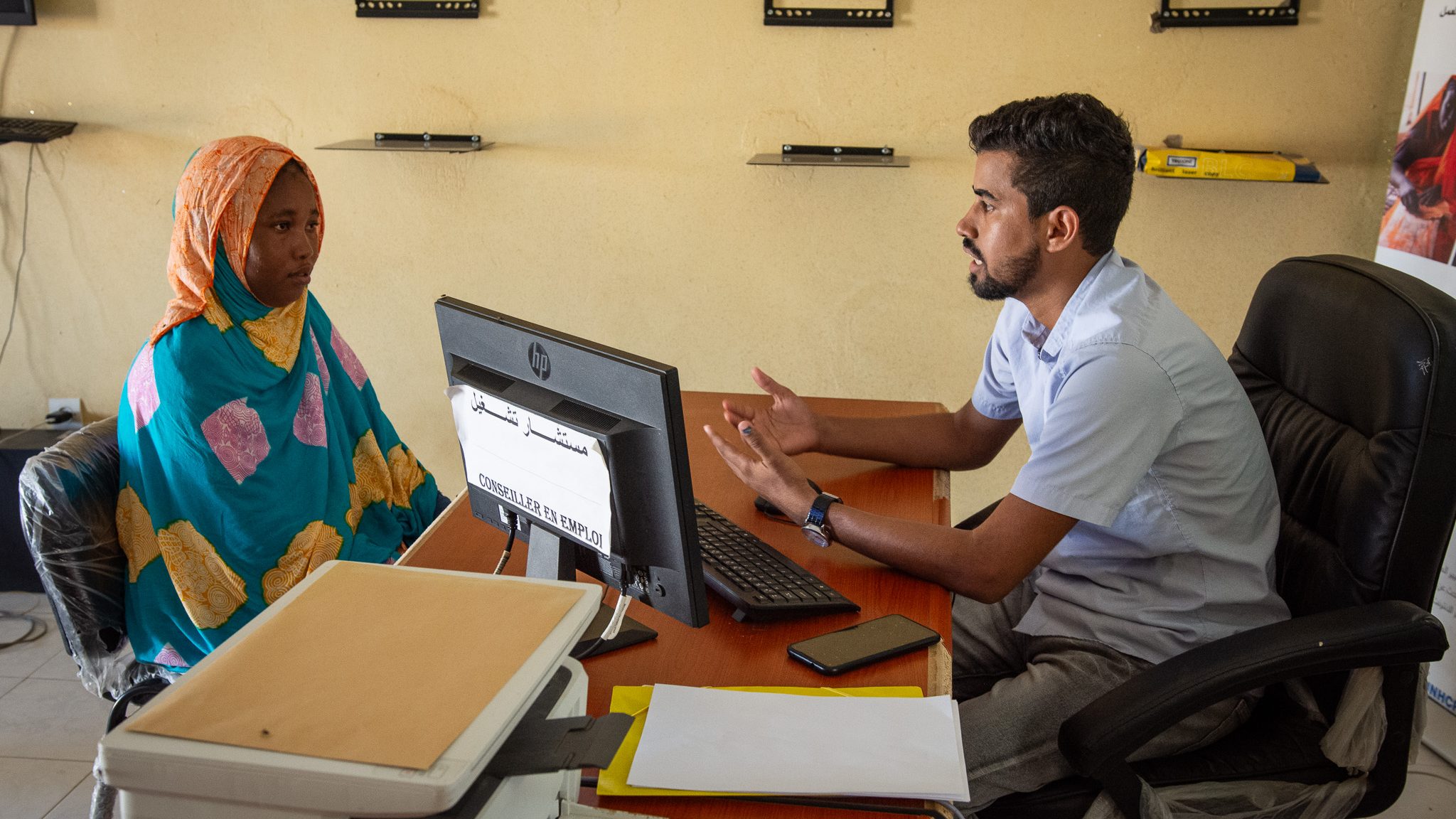
What role does the information and communication technology sector play in the future of young people, and how can innovation further support growth in the Sahel?
The digital sector is keeping young people very busy in Mauritania and the Sahel. Many people spend a great deal of time on their mobile phones, as the price of these devices has become much more affordable, as has access to the internet. Digital technology can be used to guide young people and improve their skill levels, and we need to transform the way we communicate with them. Young people no longer watch television or listen to the radio. But they will listen to a podcast or a 30-second video on Tiktok. We need to adapt to this paradigm shift if we are to communicate effectively with our young people.
We also need to capitalise on the massive use of digital tools by young people to develop learning tools tailored to their needs and to guide them towards the development of entrepreneurial solutions to our various development problems. For example, young people who did not go to university can be included in the digital economy, for example by creating their own jobs in graphic design or coding. These are rewarding and exciting professions that can be learned outside the classroom.
I would like to say this to the young people of Mauritania and the Sahel: “Despite the major challenges facing our region, it is full of untapped potential. It is up to us to move things forward. We must extend our strength and dynamism to all segments of the society. Let’s take advantage of the opportunities offered by innovation and digital technology to turn our challenges into opportunities. Let’s design, propose and develop innovative, creative and inclusive solutions to our development challenges.”

